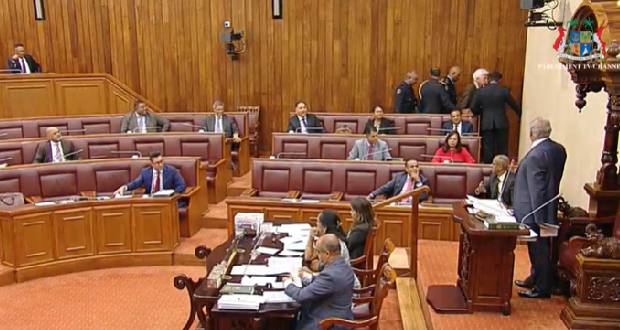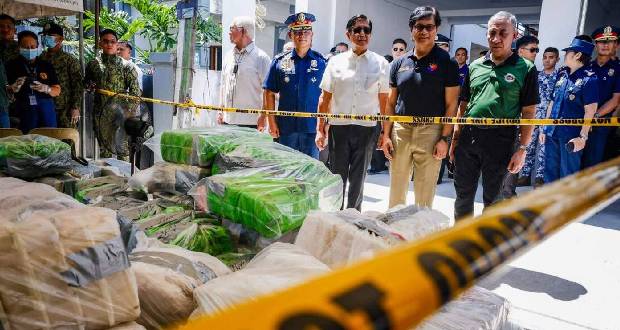Publicité
Management: Where have our work ethics gone?
Par
Partager cet article
Management: Where have our work ethics gone?

Is it not high time for our senior managers and administrators, in the private and public sectors, our professionals and all our compatriots, for that matter, to show some concern over what is happening to work ethics in our country? The situation has seen a dramatic change from what it was some fifty years or so ago. The new generations simply do not want to work or, if they do, they will make sure they do the minimum. Many of them have their eyes on other horizons, forgetting that whatever their dreams of the Eldorado outside, they must earn their keep in Mauritius.
What has set me writing this article is the sight of some local government workers cleaning a drain in Cascavelle as a result of the heavy rains and flooding. This work started some three weeks ago. At times, there is one man on a machine removing the rubbish which has accumulated over the years, at other times there is a gang of some ten persons with some 50% of them giving the impression of being supervisors, which may be a wrong impression as they take turns digging, removing slabs or doing other manual tasks. But when you see the poor quality of the work, you ask yourselves, “but where are the people whom we used to call Supervisors, Gangmen, Leading Hands or Sirdars”? Is this not typical of the slovenly performance on our major infrastructural projects, which give us so many headaches?
Are our politicians, despite their pretences of being angels and protesting their sincerity on the media, only interested in their survival and unashamedly distributing sops to their electorate from public funds – instead of earning their respect and gratitude through hard work? When will everybody start working diligently and stop postponing things and bluffing their way through? Those thousands of my compatriots, who have supported Sir Anerood Jugnauth to bring about the economic miracle and who have now retired from active service, must now be revolted at the inertia and lethargy that characterize their replacements. Likewise, the great numbers of manual workers who toiled and moiled in spite of the vagaries of the weather and who did not have a smartphone to keep them company and who continued working during their lunchtime, are now condemned to view the pitiable spectacle of hundreds of their successors waiting for lunchtime and disappearing a few minutes after.

leaving early and a lack of punctuality are examples of a bad attitude at work.
And yet nowadays with the many facilities for education in countless universities and management schools, we have more qualified professionals – at least on paper – than we ever had in the distant past. But, are we still practising the hallowed principles of management that are taught on in basic management courses? I suspect that what is happening is that our advisors, I mean the political ones, are as ignorant of management principles as their political masters. And those public administrators who can lecture more effectively than some academics are unwilling to “manage” leaving it to their political masters, who think they know better.
Sir Dayendranath Burrenchobay and former judge Rajsoomer Lallah recommended that public administrators should have a grounding in law, I make bold to suggest that, all those who dare to dabble in management should have the decency to earn at least a diploma in management. (…) Many of our man-made calamities such as flash floods or rivers overflowing their banks would be avoided if the planners had a modicum of common sense, and adopted a systems approach to project management. Kailash Ruhee, former minister of the civil service, used to say that “management is organised common sense”.
Many decision-makers such as politicians and local government councillors, without any expertise, grant all sorts of permits for various activities such as erecting buildings in breach of building regulations, or selling food by the roadside in flagrant breach of health and sanitation regulations. When the permits explode in their face, ministers and their advisers flock around the victims shedding their crocodile tears. But “enough is enough” say some people whose patience is wearing thin. (…)
Let me go back to the purpose of my paper which is to deplore the disappearance of work ethics at the intermediate or supervisory levels of management. We cannot expect the top guy to leave his desk and roam the field to check the quality of work. Their absence may explain why roads may collapse andwhy houses are built on boundaries, without observing the minimum distances from the road or on marshy grounds in violation of building regulations. And yet the PRB over the years have granted all manner of benefits to those who need a means of transport to do their work: Passage Benefit, Mileage allowance, Travel Grant, Petrol Allowance, etc. These perks are of no avail if their beneficiaries pocket the allowances and leave their vehicles in their garages or wait for a public vehicle to take them to their site of work for inspection and monitoring.
If people ring up, the reply is invariably: “sorry, Sir. He is in a meeting with the CEO”. How about his other colleagues? “They are also in the meeting.” Meetings, bloody Meetings and More Bloody Meetings: these are the titles of two Australian management films produced by John Cheese. After having seen the films, our managers will, hopefully, learn how precious the time of their officers is and will insist that only those who are indispensable attend meetings. People at intermediate level should be left free to inspect or supervise. There is nothing wrong in having a meeting with one or two persons. The weekly Monday or Friday Meetings should be banned unless they are necessary. This is also a question of work ethics – that of the CEO before we can gauge that of the Supervisor. But if the latter is not required at HQs, he should be “Supervising”. He is an important rung of the ladder, not least for control, monitoring and communication between top managers and workers.
If we don’t like the terms Supervisor, leading hand or middle manager, let us talk of team mates. We are all, from top to bottom, members of a team and our work depends on each one of us doing our part at a reasonable pace. And we can’t tolerate it if somebody each time rushes to the toilet. I have had the privilege to serve at different levels of management. Let me share with you some of my observations in the government.
This officer is always punctual. The first thing that he does is take his bottle of water to the toilet after making sure that his newspaper is safely thrust into his pocket. When he has read part of the news, he rushes to his desk. He searches his bag, reaches for his bread and butter and starts munching while finishing his newspaper. Coffee is served by an office Attendant. He starts shuffling the files in his tray and with a sigh of regret sets to work but lunch he says to himself is not far.
This is an example of the quasi-inactivity and absence of middle management to make sure people are piling their weight. I suspect that the situation is the same whether it is in the private or public sector except that in the former, the grapevine will sooner or later bring such unprofessional conduct to the attention of management. I make a fervent plea to managers and politicians not to give the impression that you are working when in fact you are only busy. Watch our senior politicians answering parliamentary questions and you will understand how many of them read their files or are ignorant of what happens in the portfolio/s. The Prime Minister sets the good example by answering questions as best he can without hiding behind questions which are wrongly worded. He reads the mind of the parliamentarian who has asked the question.
Publicité
Les plus récents






